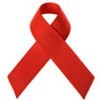By Jilleen Barrett, Editorial Intern
James Oleske, MD, MPH, was a pediatrician in New Jersey at the start of the HIV/AIDS epidemic. Before AIDS had been named—and before HIV had even been discovered—Oleske saw signs of the disease in some of his patients and knew he had to find a way to help them. Now, he is being recognized in the new documentary Don Quixote in Newark, directed by the award-winning director Joseph Dorman, which honors Oleske’s pioneering career.
Oleske alerted other doctors that he was concerned that the children had AIDS, which at that point was known to predominantly affect gay men and people who used drugs. He was told by other medical professionals that his findings could not be true, and the media even labeled him an alarmist.
Despite their discouraging words, Oleske and a team of researchers—including Robert Gallo, MD—kept investigating. Oleske ended up becoming a key player in the research of AIDS in children and the discovery of HIV.
In the film, Gallo says Oleske was known as a doctor who really cared about finding a cure and would even personally drive blood samples to labs to make sure they were tested right away.
His bold behavior was in part inspired by his favorite fictional character, Don Quixote, the main character in what Oleske considers to be the greatest book ever written. In the film, Oleske says he believes Don Quixote “transcends the foolishness of the dream” and offers wisdom that benefited his efforts in the medical field. “Don’t look at the reality, but look at what you’d like the reality to be,” Oleske says, referencing one of the lessons learned from the famous novel.
Don Quixote in Newark premieres June 8 on PBS at 10 p.m. ET on WNET and throughout June on other PBS stations. The documentary also can be streamed on Amazon Prime.








Comments
Comments